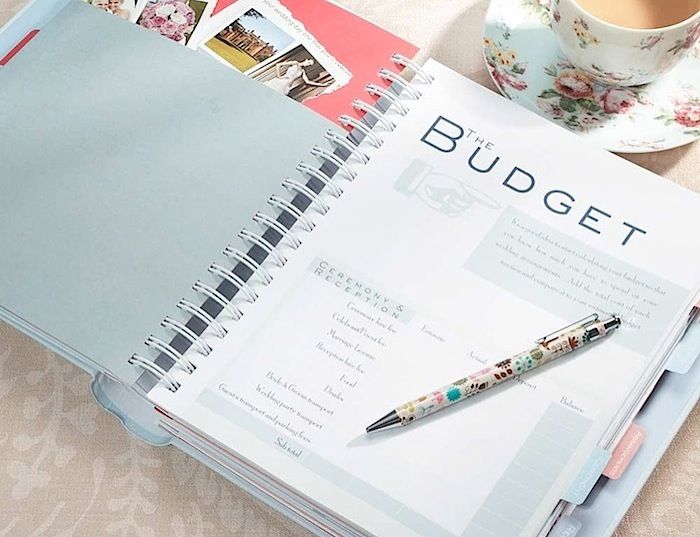Your wedding will likely be the largest and the most expensive party you’ve ever hosted, so putting the time and the energy in now in figuring out a wedding budget will ensure that you live happily ever after and wedding-debt free. To create a wedding budget is hard work, we know, so follow the 5 steps we’ve outlined in this article to help you set a budget you can actually stick to.
Step 1
Will You Be Receiving Any Contributions?
Never assume your parents or loved ones are willing or able to contribute to the cost of your wedding. Knowing who’s eager to contribute and how much they’re willing to spend is a good first step in calculating your overall budget.
We realize that conversations about money can be uncomfortable, so when you approach these discussions, do so in a respectful manner and be okay with hearing “Sorry, I’d love to help but I just can’t.”
Step 2
Crunch Your Numbers
Once you have an idea of how much financial assistance you’ll be receiving, focus on your own contribution.
- Based on your monthly income, how much can you and your fiancé realistically and comfortably afford to spend given all your day-to-day expenses?
- Can the both of you reasonably set aside at least 10% of your monthly income between now and the wedding?
- How much, if any, can you responsibly pull out from an existing savings account without touching your emergency fund?
Estimate your personal wedding budget based on your answers to the questions above.
Step 3
Estimate Your Guest Count
Now that you have an approximate budget, you’ll want to have an approximate guest count.
The cost of a wedding is pretty much based on guest count. With two of the biggest wedding expenses being the venue and food and alcohol, the number of guests in attendance will determine not only the size of your venue, but also how much food and alcohol you’ll have to provide.
Looking at your wedding as a “per-person” expense will help put the costs into perspective. According to the Global Wedding Report by Wedding Wire, in 2019 Canadian weddings “averaged 154 guests, for an average spend of $189 per person.” This is just the cost on food and alcohol. You’ll also have to take your guest count into consideration when factoring in the number of invitations, wedding favors, cake slices, and table and chair rentals you’ll need.
Setting a firm guest count from the beginning is the best way to stay on budget. Read our other journal entry for tips on how to determine your wedding guest list.
Step 4
Do Your Research
To determine if you’ve set a realistic budget, you’ll need to know the pricing for venues and vendors in your chosen city and season. For example, in Toronto to have you wedding during the winter season versus the summer season will be much more affordable. And having your wedding on a Friday or Sunday will cost less than having it on a Saturday.
There are a lot of hidden costs that you’ll also have to consider. For example, a venue will sometimes charge a cake-cutting fee. And you don’t just pay a venue rental fee; there’s Socan and ReSound fees to consider as well as a DJ hook-in fee. It’s essential that you read through all the fine print in your contracts and educate yourselves on “hidden” fees. That way you’ll have fewer surprises and will be able to stay on budget.
Step 5
Do The Math
Does your estimated budget match the actual cost of your dream wedding?
When researching vendors, we recommend creating a spreadsheet to help keep track of costs. Google Sheets is a great tool for this and easily allows you to share your spreadsheet with your fiancé, parents, or anyone else who is contributing to your budget.
Create a spreadsheet with two columns: Estimated and Actual. What you originally budgeted will go under Estimated and the proposals you receive will go under Actual. We recommend starting with the venue as it’s the most important piece of the wedding puzzle. Once you’ve finished your research, does your estimated budget and the real world costs line up?
